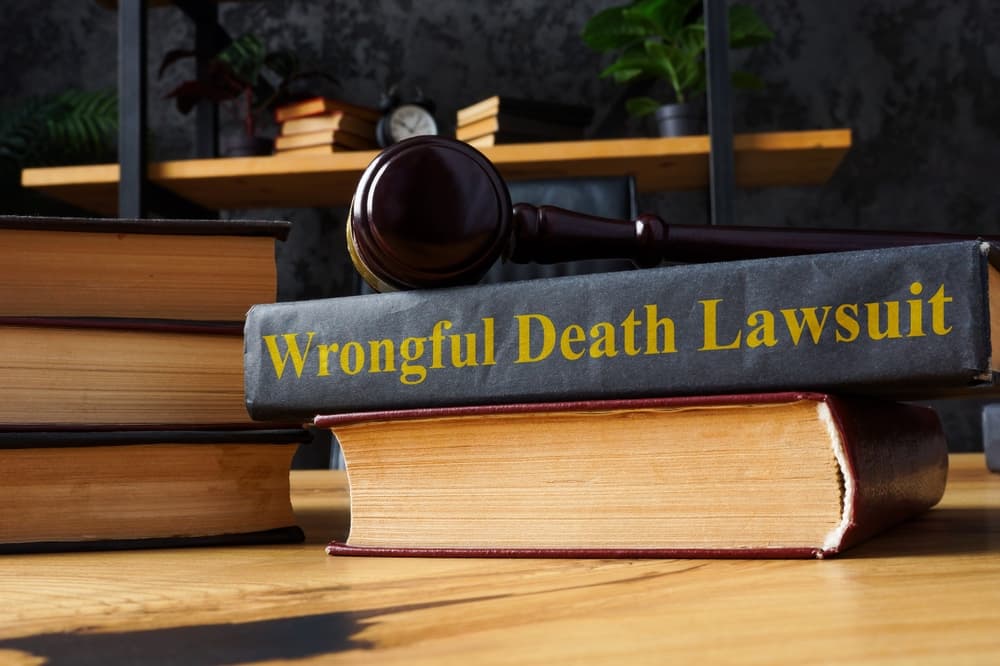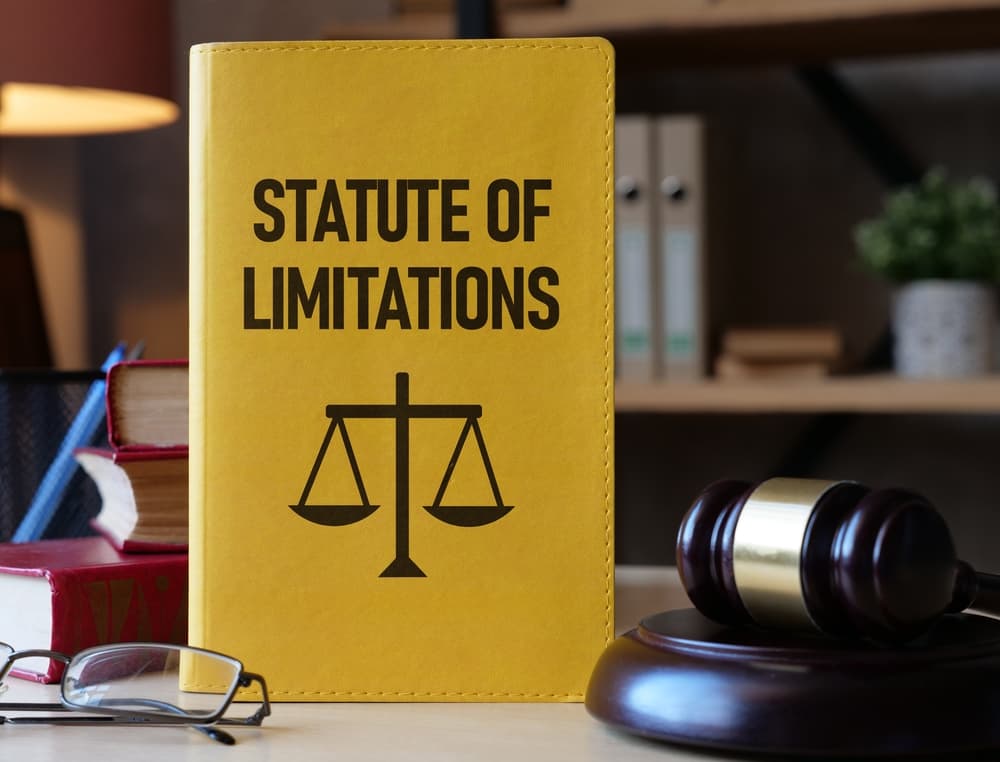Losing a loved one is one of the most challenging and heart-breaking experiences anyone can go through in life. When that loss is due to the negligence or wrongdoing of another, the feelings of grief and injustice can become too overwhelming. For many, pursuing a wrongful death claim offers a path to some measure of justice and closure. Yet, legal procedures have timelines that must be understood and adhered to.
Pursuing legal action and getting compensated may be the last thing on your mind right now. And understandably, no amount of money in the world can bring back your loved one or make all the pain disappear. However, filing a wrongful death claim can provide a sense of justice for your loved one and bring about much-needed closure. A Savannah wrongful death attorney can guide you in understanding the requirements and legal procedures involved in pursuing a compensation claim.
What Is a Wrongful Death Lawsuit?

A wrongful death lawsuit is a legal action taken by family members or other eligible individuals when a person dies as a result of someone else’s negligence, recklessness, or intentional harm. Unlike criminal cases, which the state initiates, wrongful death lawsuits are civil actions brought by the deceased’s estate or close relatives. The primary purpose of such a lawsuit is to seek compensation for the financial and emotional losses suffered by the survivors. These losses can include but are not limited to:
- Medical expenses before death
- Funeral and burial costs
- Loss of financial support
- Loss of guidance, companionship, and emotional support
The legal grounds for a wrongful death claim can vary depending on jurisdiction but generally include situations like medical malpractice, car accidents, truck accidents, workplace incidents, and defective products. Statistically speaking, about 40,000 Americans die in motor vehicle crashes every year, with Georgia being in the top four states with the highest number of traffic fatalities.
It’s crucial to consult with a wrongful death attorney to understand the specific laws in your area, as they can provide guidance tailored to your unique circumstances. Moreover, establishing a wrongful death claim requires proving that the defendant (the party at fault) owed a duty of care towards the deceased, breached that duty, and directly caused the death as a result.
What Is a Statute of Limitations?

A statute of limitations is a legal rule that governs the maximum period someone must initiate a lawsuit after an event occurs. This limitation aims to ensure that individuals bring forth cases while evidence is still fresh and to provide a degree of legal certainty for potential defendants. In the context of wrongful death claims, the statute of limitations specifies how long the deceased’s family has to initiate legal proceedings from the date of death.
The time frame for filing a wrongful death lawsuit varies from state to state, typically one to three years. Some jurisdictions may grant exceptions or extensions under specific conditions, such as when the wrongful death claim wasn’t immediately apparent or when the plaintiff is a minor. Therefore, it’s essential to consult state-specific laws or seek legal advice to understand the precise limitations applicable to your case.
Failing to act within the statute of limitations can have severe repercussions, effectively barring you from seeking legal recourse. Therefore, awareness and timely action are crucial. Even if you have ample time, starting the process early enables comprehensive preparation and ensures critical evidence preservation.
What Happens if You Miss the Statute of Limitations?
Missing the statute of limitations for a wrongful death claim can have dire consequences, effectively denying you the opportunity to seek justice and financial compensation. Once the deadline passes, the courts will generally refuse to hear your case, irrespective of its merits. This legal barrier underscores the importance of understanding and adhering to the specified timeframe.
However, there are rare instances where exceptions might apply. Some states have provisions for tolling, which effectively pauses or extends the statute of limitations under certain conditions. For example, if the wrongful death was not immediately apparent and only discovered much later, the clock might start ticking from the date of discovery rather than the actual date of death.
Nevertheless, relying on these exceptions can be risky and unpredictable. Legal nuances and interpretations can vary, so seeking professional legal advice as soon as possible is crucial. A wrongful death lawyer can guide you through your case’s legalities to ensure you meet all deadlines and procedural requirements.
An Example of One State’s Statute of Limitations for Wrongful Death
Each state has its own statute of limitations, and you should discuss your timeline with a local lawyer who knows your state’s laws. For example, under Georgia law, eligible family members of the deceased individuals have the right to file a wrongful death claim and pursue compensation for “the full value of the life of the decedent.” Eligible family members include the surviving spouse and children. The statute of limitations for such cases is two years from the date of death. However, certain circumstances may warrant an extension of the deadline (we will discuss the exceptions to Georgia’s wrongful death statute of limitations in the next section).
When a spouse survives the decedent, the surviving husband or wife can file a compensation claim. Any surviving children can initiate legal action if the decedent’s spouse is no longer alive or divorced. What happens if the decedent doesn’t leave any spouse or children behind depends on the facts of the case. If you are a parent, sibling, or relative of a person who died, you might want to discuss your situation with a wrongful death attorney to determine whether or not you are entitled to any compensation.
Exceptions to the Wrongful Death Statute of Limitations in Georgia
Suppose you did not start working on your legal case immediately and worry that the statute of limitations might expire before you can initiate legal action against the negligent party. In that case, you need to be aware of the exceptions. Understanding these exceptions can ensure that you and your family have every opportunity to pursue rightful compensation.
Medical malpractice caused the death.
In cases where a death results from medical malpractice, the standard statute of limitations for wrongful death claims is two years from the date of death. However, there are certain nuances to consider. For example, if the medical malpractice wasn’t immediately apparent, the “discovery rule” might apply. This rule enables the statute of limitations to commence when the malpractice becomes or should have been apparent. Additionally, there is an overarching statute of repose for medical malpractice claims, which generally bars any lawsuit filed more than five years after the malpractice occurred. Therefore, timely action and consultation with legal professionals are crucial for navigating these complexities.
The Survivor Is a Minor or Mentally Incompetent
If the surviving family member eligible to file a wrongful death claim is a minor or mentally incompetent, the statute of limitations may be paused or “tolled.” For minors, the statute of limitations typically begins when they reach the age of majority, which is 18 in Georgia.
The statute of limitations may be tolled for mentally incompetent individuals until they are deemed competent. This ensures that individuals who cannot legally represent themselves due to age or mental capacity do not unfairly face barriers when seeking justice. Consult a wrongful death lawyer to understand how these tolling provisions apply to your situation.
- Note: A person may be mentally incompetent when they lack reasoning faculties and/or are incapable of acting and understanding with discretion.
The Victim Died Due to Criminal Activity
When a wrongful death results from criminal activity, such as murder or manslaughter, the statute of limitations for filing a wrongful death claim may be different. In Georgia, if a crime causes death, tolling the statute of limitations for filing a civil wrongful death lawsuit until the criminal case concludes is possible. This means that the period for filing the wrongful death claim does not begin until the criminal proceedings are complete. This exception ensures that the focus remains on the criminal prosecution first, allowing the family time to pursue civil action afterward.
It Was Not Immediately Discovered that Someone’s Negligence Caused the Death.
In some cases, it may not be immediately apparent that a loved one’s death resulted from someone else’s negligence. For example, an individual might pass away under what initially seems like natural causes, only for subsequent investigations or evidence to reveal negligence. In such scenarios, Georgia’s “discovery rule” may apply, allowing the statute of limitations to begin when the negligence becomes or should have become known. This exception ensures that families do not face denial of justice simply because the negligent cause of death was not immediately obvious.
How Can a Wrongful Death Lawyer Help You With Your Case?

When pursuing legal action after the death of a loved one, the thought, “Do I need a lawyer?” might appear in your mind sooner rather than later. You cannot answer this question with certainty if you do not fully understand the role a wrongful death attorney can play in your case.
Legal Guidance and Support
Navigating the legal system is not an easy task, especially for those who are grieving and mourning the loss of a loved one. A lawyer provides legal guidance and support to ensure you understand your rights and the processes involved in filing a wrongful death claim. They will clarify legal terms and empower you to make informed decisions to pursue justice.
Investigating the Case
One of the first steps a lawyer takes in a wrongful death case is investigating the circumstances surrounding the decedent’s passing. This involves collecting evidence, consulting with professionals, interviewing witnesses, and reconstructing the events leading up to the incident. This step helps build a strong case and prove liability.
Evidence can deteriorate or disappear over time. Witnesses may become harder to locate, memories may fade, and physical evidence may be lost or damaged. By hiring a lawyer promptly, you increase the likelihood of preserving critical evidence that can strengthen your case.
Establishing Liability
Proving that another party is liable for the wrongful death requires demonstrating that their negligence or misconduct directly caused it. This involves:
- Duty of care – establishing that the defendant owed a duty of care to the deceased.
- Breach of duty – proving that the defendant breached this duty through their actions or inactions.
- Causation – Showing a direct link between the breach of duty and the death.
- Damages – Demonstrating that the death resulted in quantifiable damages (e.g., medical bills, funeral costs, loss of income, etc.).
A wrongful death lawyer can gather and present the necessary evidence to establish these elements and build a compelling case on your behalf.
Handling Paperwork and Deadlines
Legal proceedings involve extensive paperwork and strict deadlines. Failing to file documents correctly or missing a deadline can jeopardize your case or leave you with no compensation. A skilled attorney can help ensure that all paperwork is completed accurately and submitted on time. They are also well-versed in the procedural requirements specific to wrongful death claims, ensuring that your case proceeds through the legal system smoothly and as quickly as possible to put an end to this.
Negotiating Settlements
Many parties resolve wrongful death cases through settlements rather than proceeding to trial. Statistics indicate that 97 percent of all tort claims (including wrongful death cases) settle out of court. An experienced lawyer can skillfully negotiate with insurance companies and opposing parties to secure a fair settlement that adequately compensates you for your loss. They will advocate on your behalf, ensuring you receive the compensation you deserve.

If a settlement eludes agreement, your lawyer will file a lawsuit and represent you in court. They will present your case before a judge and jury, cross-examine witnesses, and argue. Having a lawyer with trial experience significantly increases your chances of achieving a favorable outcome, as you should never rule out the possibility of litigation.
Your first step is to schedule your free case evaluation with a compassionate personal injury lawyer near you.
